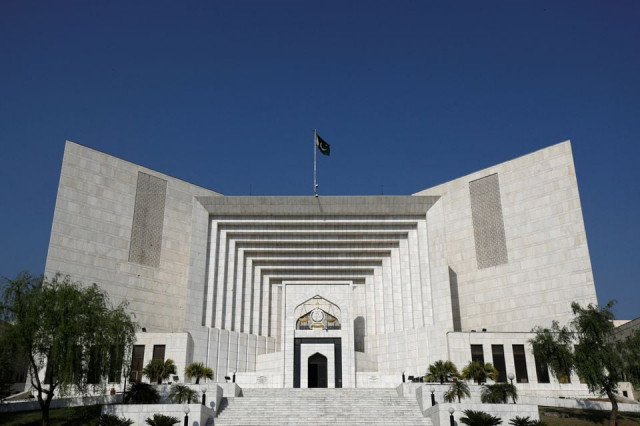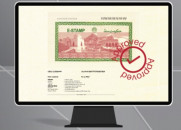Absence period from job not to affect penalty: SC
Disciplinary authority has to make incidental order as to what treatment should be given to the period of his absence

The Supreme Court has held that the treatment given to the period of absence from duty after the imposition of penalty had no bearing on the forfeiture and did not undo the fine imposed.
"A disciplinary authority, or an appellate authority, tribunal or court, when imposes a penalty lesser than dismissal or removal from service on a delinquent civil servant for his misconduct of being absent from duty, it has to make an incidental order as to what treatment should be given to the period of his absence for the purpose of giving continuity to his service; otherwise, the whole past service of the civil servant will stand forfeited, which would be the imposition of an additional penalty neither prescribed by the law nor imposed by the authority," a five-page judgement authored by Justice Syed Mansoor Ali Shah stated.
Justice Shah maintained the service tribunal order wherein it was held that the findings of the departmental authorities as to the petitioner’s guilt on the charge of wilful absence from duty, had partly allowed his appeal by reducing his penalty from forfeiture of two-year service to forfeiture of one year service.
A three-judge bench of the apex court led by Justice Shah noted that the unauthorised absence of a civil servant from his duty was an act which was prejudicial to “good order” and “service discipline”, and thus constituted misconduct for taking disciplinary action against him.
Also read: Islamabad issues 'special' plan amid rising security concerns
"Section 2(n)(vii) of the PEEDA Act has explicitly included the act of absence from duty without prior approval of leave in the definition of ‘misconduct’ for the purpose of application of that Act. And, as per Rule 2.11 of the Punjab Civil Services Pension Rules 1955, a Government servant forfeits his past service in case of his absence from duty without leave. Similarly, Article 420 of the Civil Service Regulations states that an interruption in the service of an officer entails forfeiture of his past service subject to certain exceptions."
"The best possible incidental order, which may be made in such a situation, is therefore to make a fictional arrangement to account for such period of absence from duty in the service record of the civil servant by treating (deeming) the same as an extraordinary leave without pay, rather than any other kind of leave; as in case of treating the said period as a leave of some other kind of leave (even if found due), the delinquent civil servant may claim pay of that period also, which would amount to awarding him a benefit rather than awarding a penalty for his fault.
"Thus, after imposing a penalty other than dismissal or removal from service, the making of an incidental order as to treating (deeming) the period of absence from duty as an extraordinary leave without pay, in no way, washes out the misconduct committed.
"It may be underlined here that although Section 4(b)(iii) of the PEEDA Act provides for the penalty of forfeiture of past service for a specific period, it has also limited the same to a maximum of five year period and thus does not permit the forfeiture of the whole past service exceeding a period of five years.
In the present case, had the departmental appellate authority not ordered to treat the period of absence of the petitioner from his duty as an extraordinary leave without pay, his whole past service would have been forfeited, instead of the imposed penalty of forfeiture of past service of two years (reduced to one year by the Tribunal)".
The judgment noted that in case of an unauthorized absence of a civil servant from his duty, two courses were open to the departmental authority: (i) to condone the unauthorized absence by accepting his explanation (if found justified) and sanction the ex-post facto leave under the relevant leave rules, or (ii) to initiate the disciplinary proceedings against him and impose a penalty for the misconduct.
"Therefore, a civil servant who remains absent from his duty may apply for condonation of the absence by offering an explanation and seek the sanction of ex-post facto leave for that period.
If the departmental authority is satisfied that there was a sufficient cause for his absence, it may condone the absence and sanction the leave ex-post facto.
"If leave is so sanctioned, then the departmental authority cannot initiate disciplinary proceedings against the civil servant for that absence from duty.
However, where the civil servant who is unauthorizedly absent does not resume duty and offer any satisfactory explanation, or where the explanation offered by him is not satisfactory, the departmental authority is to initiate the disciplinary proceedings and impose an appropriate penalty, which may range from a major penalty of dismissal or removal from service to a minor penalty of censure or withholding of increment for a specific period, mainly depending upon the nature of service, the position (duty) of the civil servant in that service, the period of absence and the cause for the absence.
"Where the penalty imposed on the delinquent civil servant is dismissal or removal from service, it may not be necessary to pass any incidental order relating to the period of absence, unless it is deemed necessary to recover any amount of pay, or other service benefits, received by the civil servant during the period of his absence from duty; but where any other penalty is awarded for the unauthorized absence from duty, it will be necessary to pass some incidental order as to how the period of absence should be accounted for and dealt with in the service record of the civil servant.
"If the unauthorized absence from duty remains unaccounted for, it will result in an interruption in service of the civil servant, thereby forfeiting his whole past service and affecting his seniority, pension etc.
Such incidental order directing how the period of absence should be treated in the service record of the civil servant is thus an administrative arrangement, which does not affect or supersede the order imposing the penalty."



















COMMENTS
Comments are moderated and generally will be posted if they are on-topic and not abusive.
For more information, please see our Comments FAQ